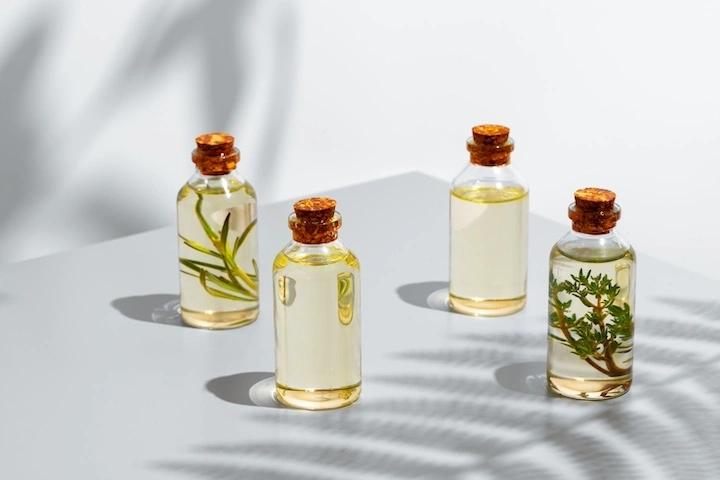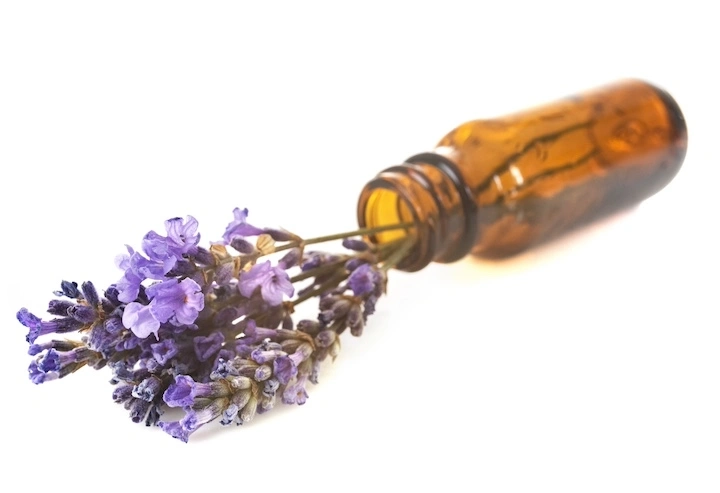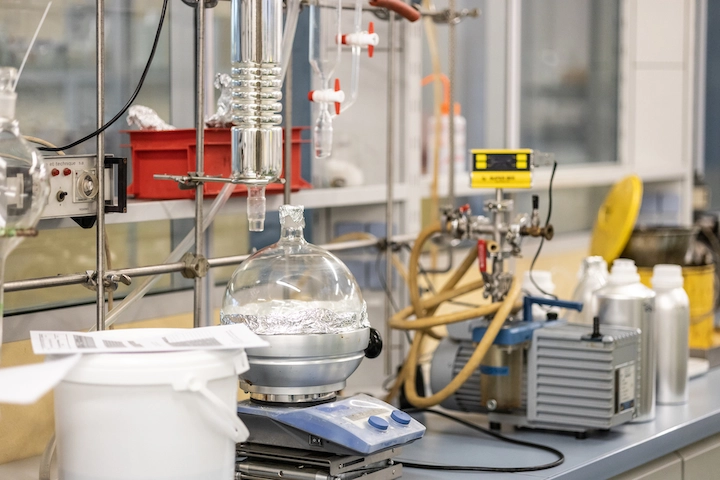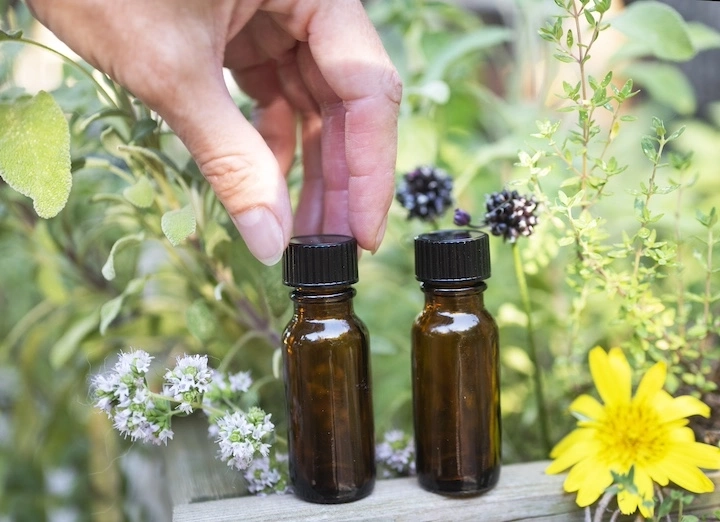
04 mars 2024
The counterfeiting of medicines and health products is an escalating issue in Europe. According to Europol, the trade in counterfeit medicines increased by 13% in 2022 compared to 2021.
As a French specialist in the online sale of 100% natural, pure, and authentic essential oils directly from the producer, Landema.com is concerned about the proliferation of counterfeits and their danger to consumers.
This article aims to warn you and provide all the keys to spot counterfeits.
Why discuss counterfeiting in the health and essential oils sector?
The Covid-19 crisis has highlighted the extent of the medical counterfeiting market, a market with colossal financial stakes. While counterfeiting traditionally affects intellectual property rights, a more insidious form, known as "regulatory" counterfeiting, now targets the very characteristics of pharmaceutical products, directly impacting consumer health.
Essential oils, used for their therapeutic virtues, their fragrances and as a pleasant addition to our interiors, are not immune to this phenomenon. Counterfeits may involve the addition of synthetic substances, dilution with lower quality oils, or products displaying a false geographical origin.
The lucrative business of counterfeit essential oils
The essential oils sector, which represented a global market of 20 billion dollars in 2021 according to a Skyquest report (see source at the end of the article), is now a prime target for counterfeiters.
Attracted by the lucrative growth of this market, illegal networks exploit mass production and online sales to distribute counterfeit products at low cost, thus ensuring significant profits. These practices do not only threaten consumer health but also undermine confidence in the authenticity and quality of essential oils.

The unknown dangers of counterfeit essential oils
Counterfeit essential oils go beyond mere inefficacy and pose a real health risk. These products may contain substances that cause allergies and irritations, excessively high concentrations of active molecules that could lead to overdosing, or microbial contaminants.
Here's what they might contain:
- Allergenic or irritating substances: added components that may trigger allergic reactions or skin irritations.
- Excessively high concentrations: an increased risk of overdosing on active molecules with potentially toxic effects on the body.
- Adulterations and falsifications: the addition of chemicals or dilution with lower quality oils compromises the product's efficacy and safety.
- Microbial contaminants: the presence of bacteria or molds can lead to infections or health complications.
These elements can trigger acute skin reactions, disrupt the digestive or neurological system, and in extreme cases, cause kidney damage. Recognizing these threats is crucial to avoid serious health consequences.
Contrary to popular belief, counterfeit essential oils are not merely ineffective. They can be dangerous to your health!

How to recognize a counterfeit essential oil
- Check the labeling and packaging: counterfeits often have poor-quality labeling. Look for spelling mistakes, errors in the Latin name of the plant, or poor-quality printing.
- Examine the appearance and smell: authentic essential oils have a characteristic smell and clear appearance. Beware of products whose smell seems artificial or too chemical.
- Beware of abnormally low prices: a price significantly lower than the market may indicate a counterfeit. Quality essential oils have a high production and control cost.
Signs of an authentic essential oil
To recognize an authentic essential oil, several indicators can guide you:
- Quality criteria: several criteria influence the quality of an essential oil, and they must be clearly explained for you to make an informed choice. The mode of cultivation (wild, organic, conventional), the precise botanical species of the plants, the mode of harvesting, the region of origin, etc., play a crucial role in the final quality of an essential oil, as does the producer's know-how. It is crucial to choose a 100% natural, pure, and authentic essential oil.

- Quality labels: look for certifications and labels such as Organic Agriculture (AB), ISO, or protected designation of origin (PDO - for fine lavender, for example) that attest to the quality and origin.
- Available analysis certificates: a reliable supplier presents analysis certificates guaranteeing the purity and exact composition of the essential oil.
- Traceability and transparency about the origin of the plants: serious brands provide precise information on the provenance and cultivation methods of the plants, ensuring complete product traceability. Do not hesitate to create your account on the landema.com website to easily access certificates and regulatory documents for each essential oil.

© Landema - Biolandes Group
How to avoid purchase scams
- Buy only in specialized stores (physical or online): these outlets guarantee a rigorous selection of products.
- Beware of enticing online promotions: many online offers are too good to be true and often hide lower quality products.
- Favor known and reputable suppliers: choose established brands with positive consumer reviews. Landema is one of them: a subsidiary of the French group Biolandes established in the Landes since 1980, we specialize in the online sale of essential oils and plant extracts directly from the producer, whose origin and quality we guarantee.

7 tips to spot counterfeits
The fight against counterfeit essential oils is crucial to protect your health. As a consumer, you have the power to make informed choices by informing yourself and staying vigilant.
By following our 7 foolproof tips, you can surely unmask counterfeits. Here is a reminder to help you during your purchases:
- Check the packaging: Beware of approximate labeling, spelling mistakes, poor-quality printing.
- Compare smells: a strange or too chemical smell can betray a counterfeit. Compare with an authentic essential oil.
- Avoid slashed prices: if the price seems too attractive, it probably hides a scam. A quality essential oil has a high production cost.
- Demand analysis certificates: serious producers provide these documents attesting to the real composition of their oils.
- Check the labels: favor quality signs like Organic Agriculture or PDO.
- Order only in specialized stores (physical or online): essential oils are carefully selected there, and advice is given by trained professionals.
- Beware of enticing promotions on the internet: many shady sites attract with very low prices.
Counterfeit essential oils represent unsuspected dangers, especially with daily or long-term use. Therefore, you need to be extremely careful when purchasing them, following our advice and choosing reputable suppliers like Landema.com.
At Landema, we commit to providing you not only with the highest quality products but also all the necessary information to help you identify authentic products. Together, let's protect our health and preserve the authenticity of nature's treasures.
Source quoted: Skyquest Report
For more information on the counterfeiting of medicines and essential oils in Europe, you can refer to these sources (in French only):
Items that could
interest
Our essential oils
will simplify your life
Your wishlist
You must be logged in to post a comment.
Login, or create an account
There is no comment for this article yet